Onyeka Igwe
A Repertoire of Protest (No Dance, No Palaver)
16 Mar - 21 Aug 2023
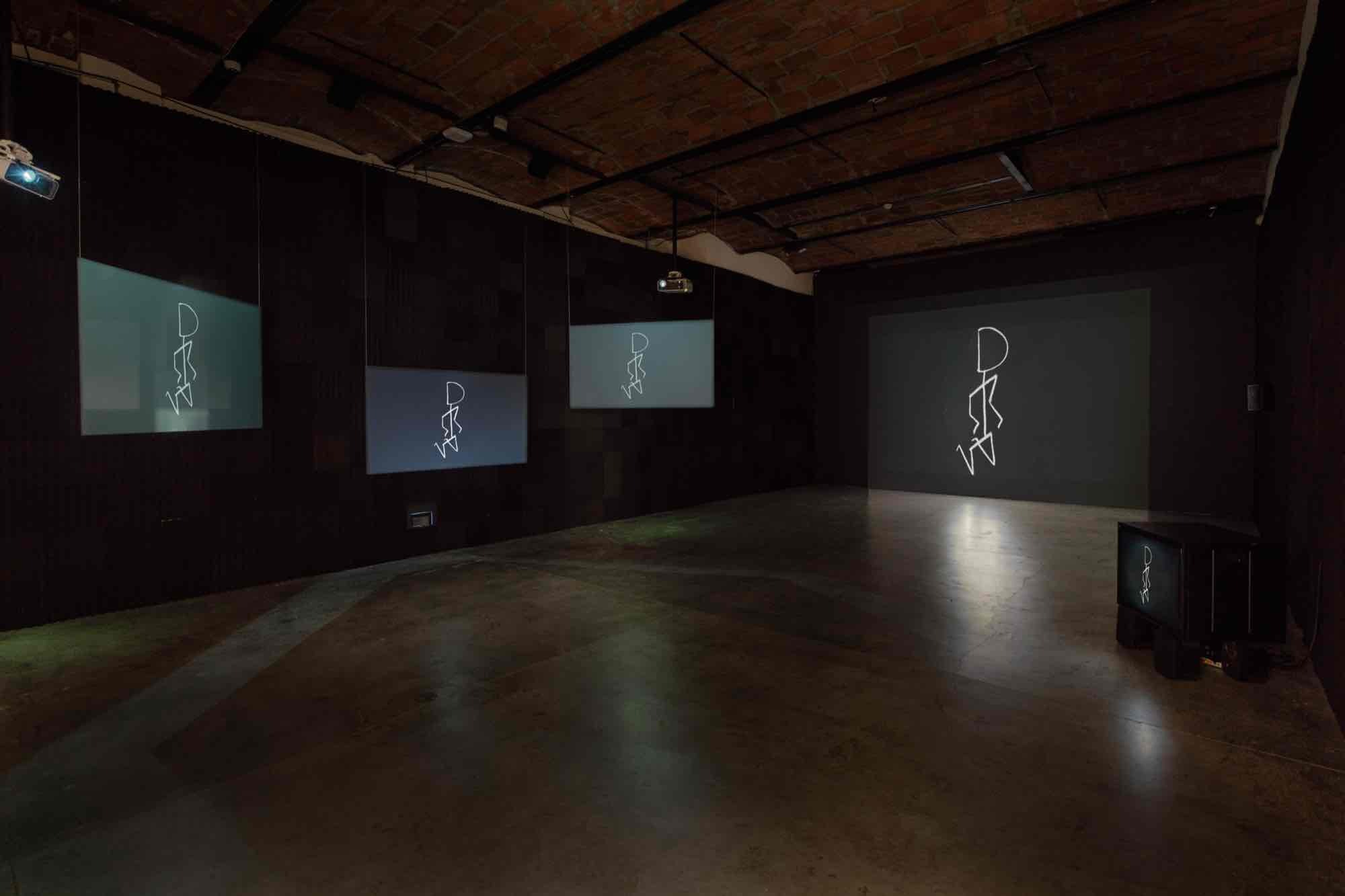
Installation view of Onyeka Igwe: A Repertoire of Protest (No Dance, No Palaver) on view at MoMA PS1 from March 16 to August 21, 2023. Image courtesy MoMA PS1. Photo: Marissa Alper
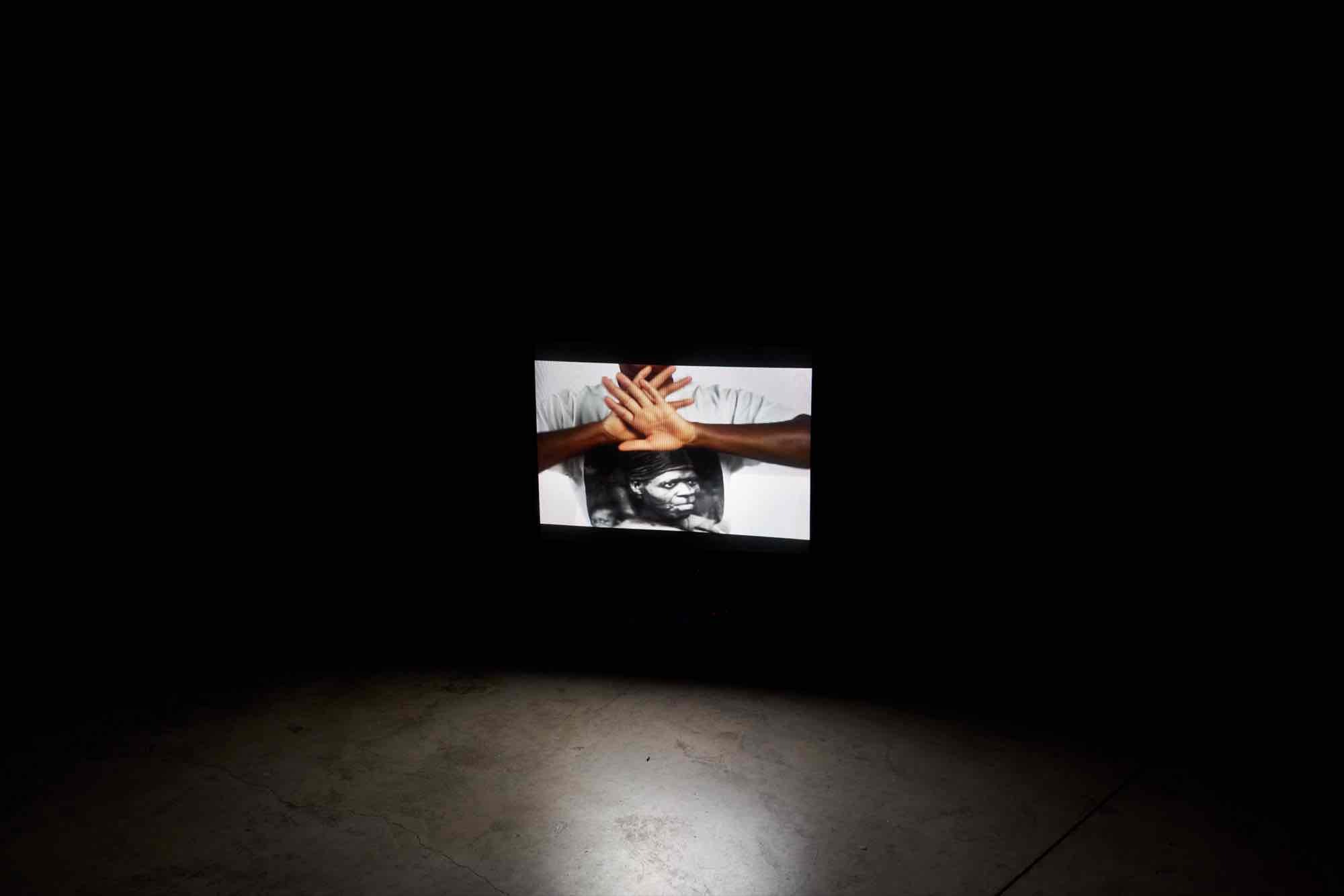
Installation view of Onyeka Igwe: A Repertoire of Protest (No Dance, No Palaver) on view at MoMA PS1 from March 16 to August 21, 2023. Image courtesy MoMA PS1. Photo: Marissa Alper
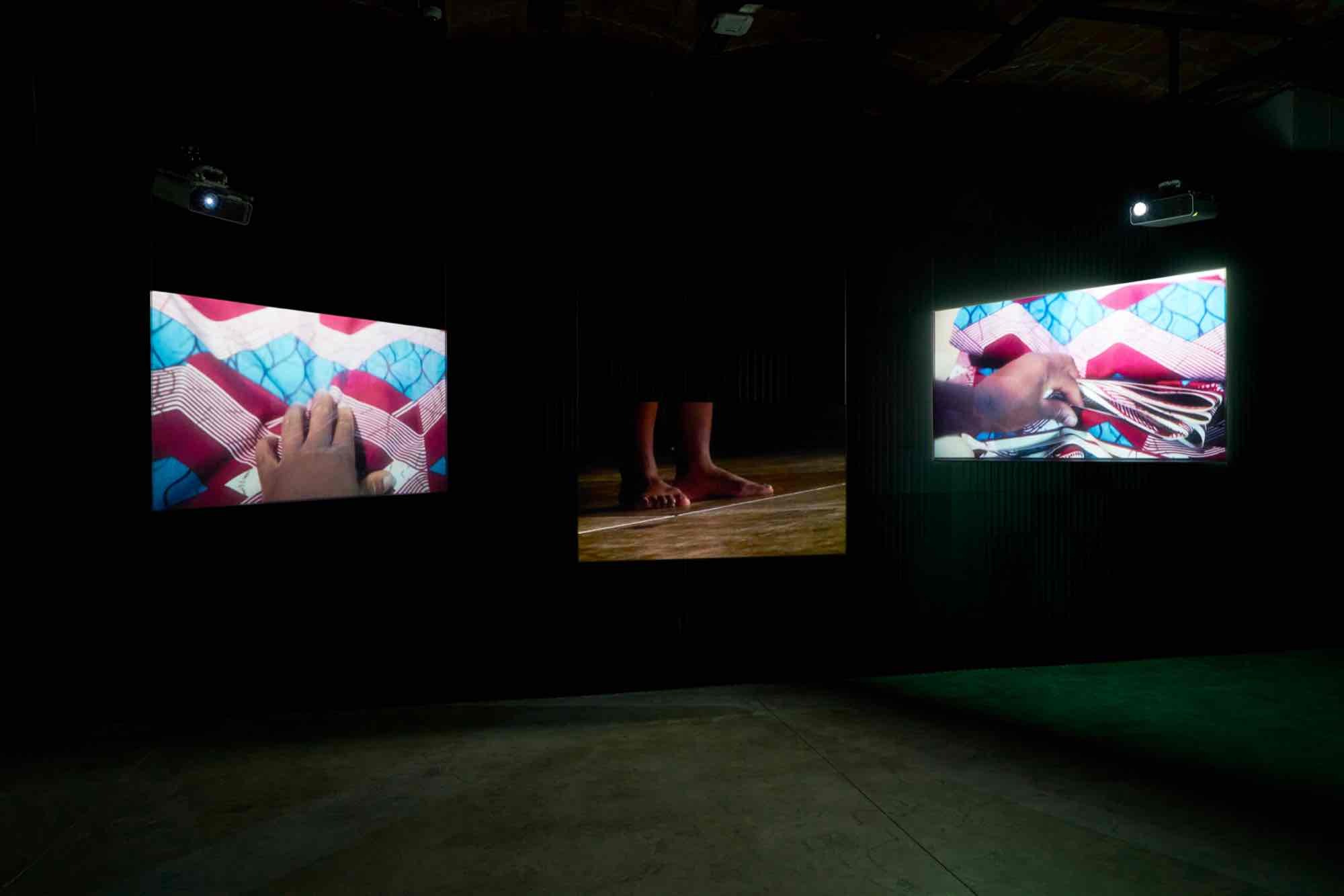
Installation view of Onyeka Igwe: A Repertoire of Protest (No Dance, No Palaver) on view at MoMA PS1 from March 16 to August 21, 2023. Image courtesy MoMA PS1. Photo: Marissa Alper
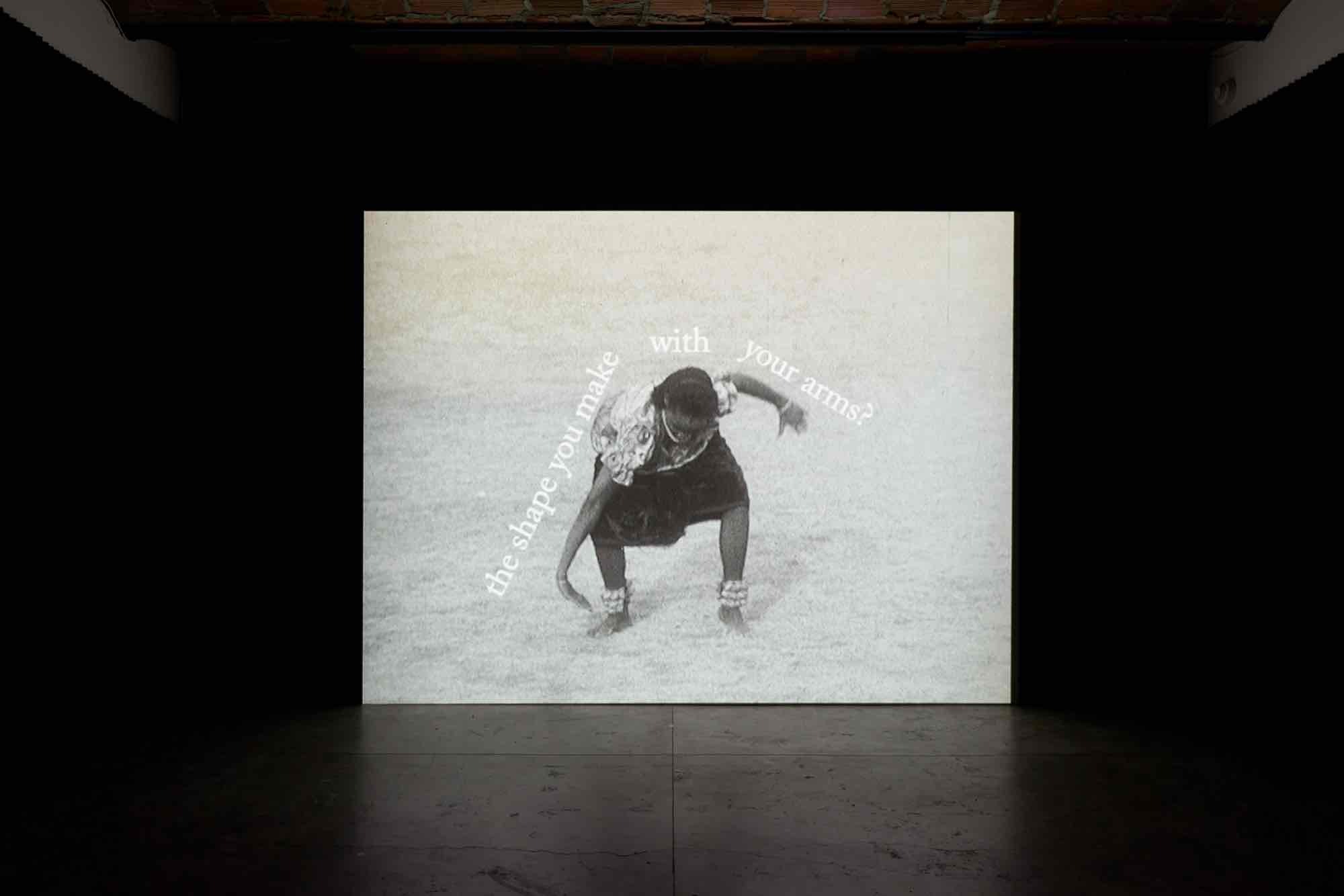
Installation view of Onyeka Igwe: A Repertoire of Protest (No Dance, No Palaver) on view at MoMA PS1 from March 16 to August 21, 2023. Image courtesy MoMA PS1. Photo: Marissa Alper
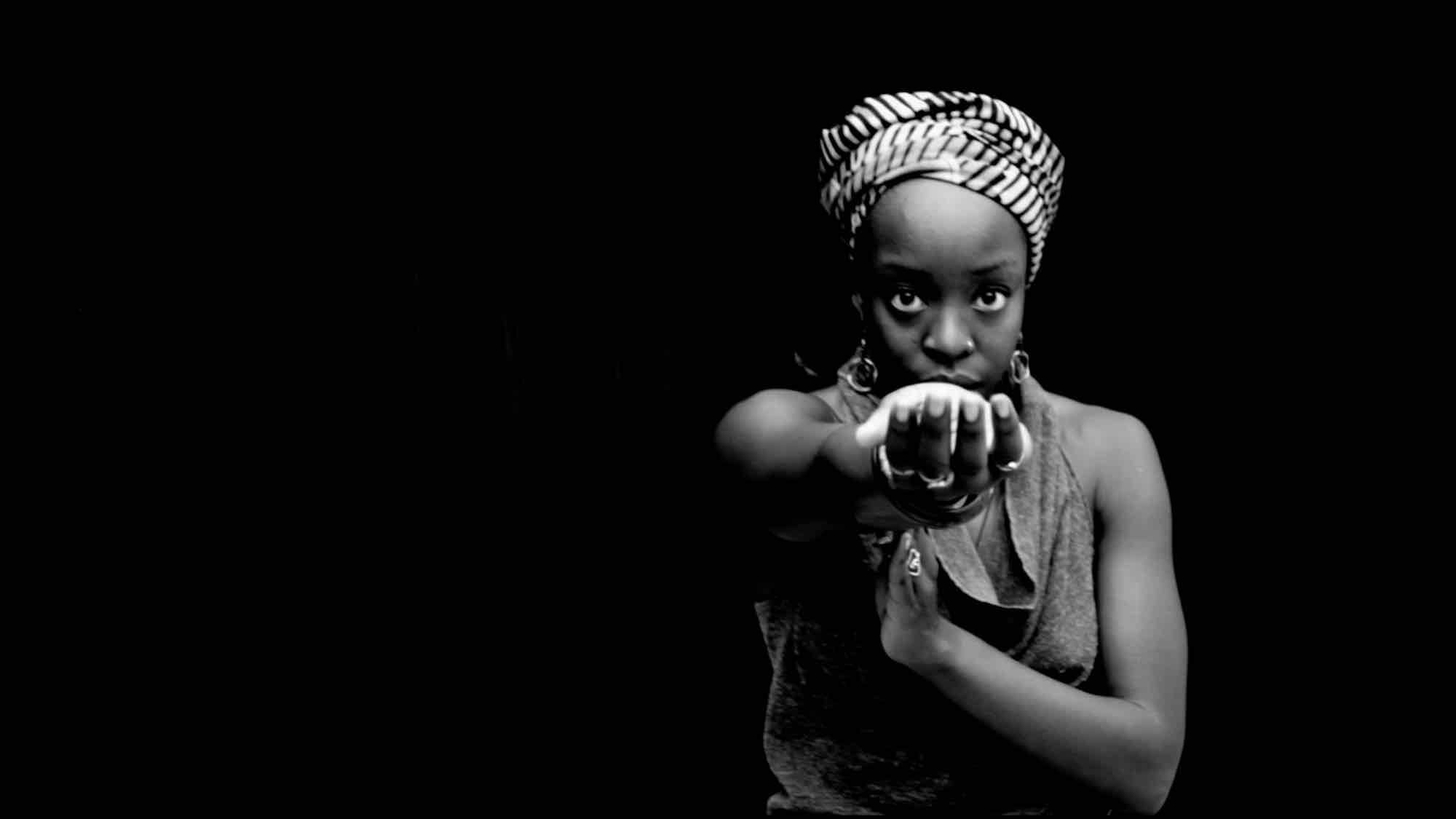
Onyeka Igwe. Sitting on a Man (video still). 2018. From A Repertoire for Protest (No Dance, No Palaver). 3-channel HD Video. Duration: 6’41”. Courtesy the artist.
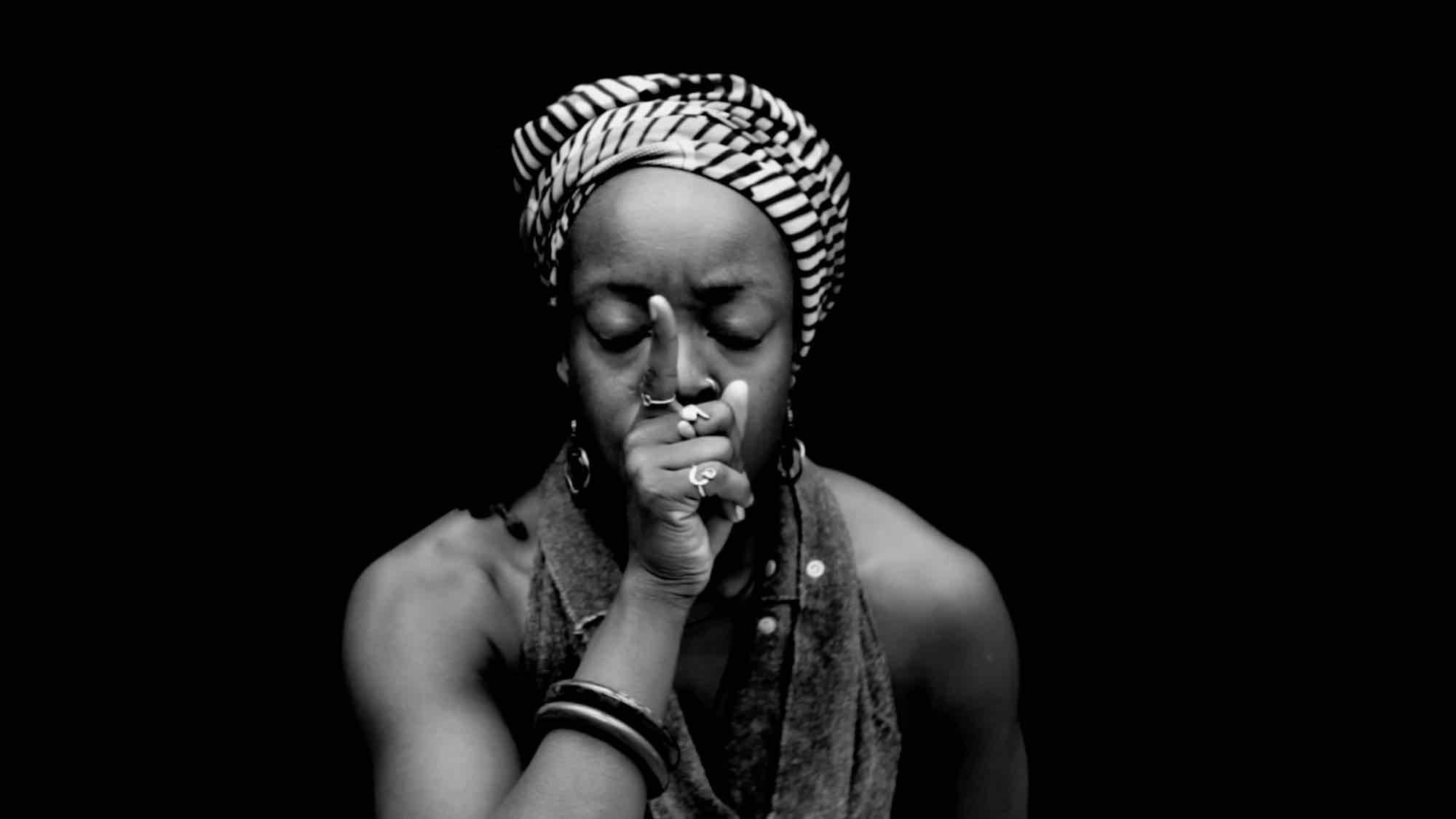
Onyeka Igwe. Sitting on a Man (video still). 2018. From A Repertoire for Protest (No Dance, No Palaver). 3-channel HD Video. Duration: 6’41”. Courtesy the artist.
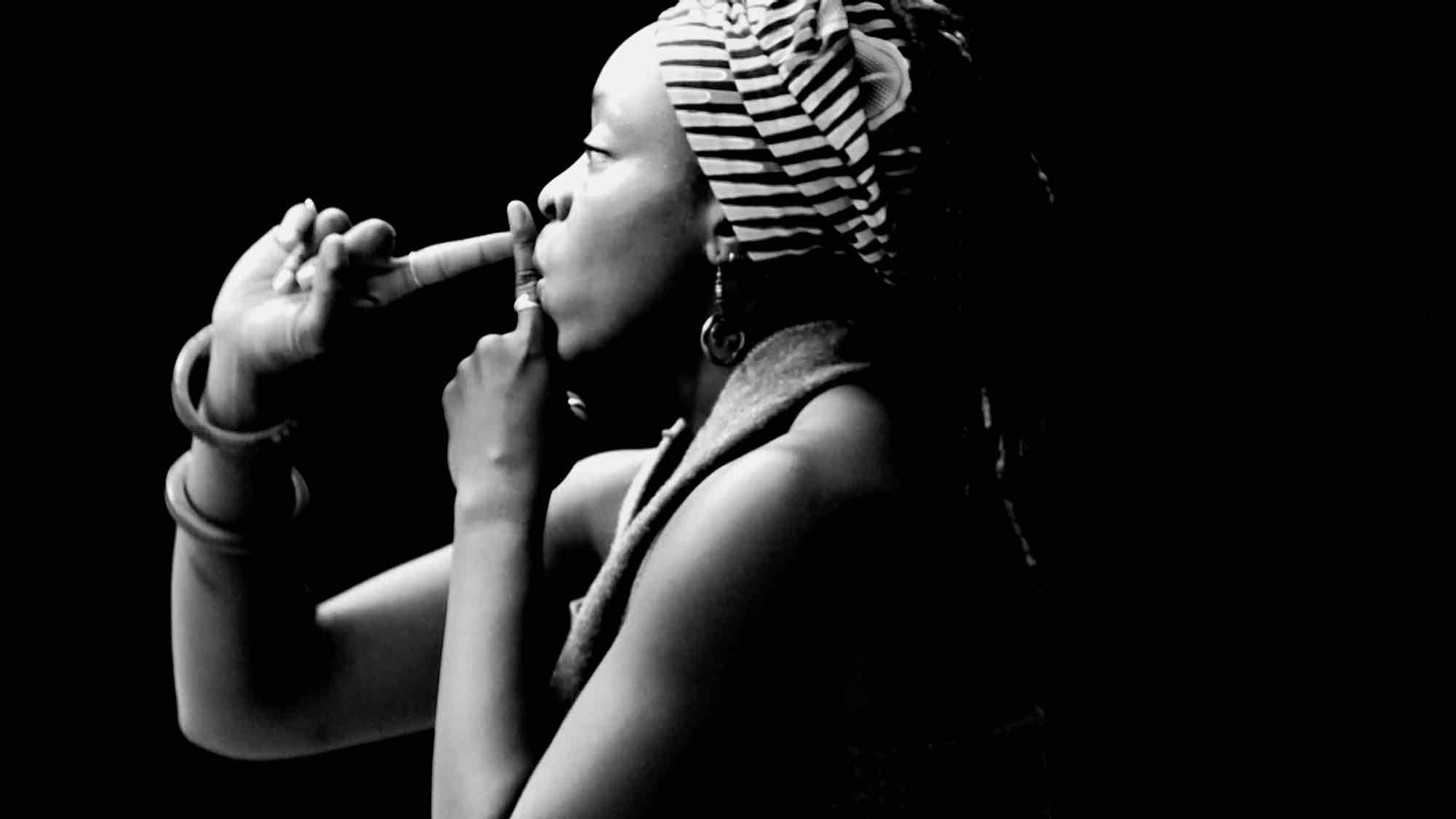
Onyeka Igwe. Sitting on a Man (video still). 2018. From A Repertoire for Protest (No Dance, No Palaver). 3-channel HD Video. Duration: 6’41”. Courtesy the artist.
MoMA PS1 will present the first solo museum exhibition by filmmaker and artist Onyeka Igwe (b. 1986, London). On view from March 16 through August 21, 2023, A Repertoire of Protest (No Dance, No Palaver) brings together three films that highlight the artist’s ongoing interest in the relation between dance and protest movements, especially those enacted by women. Igwe engages choreography on and off the screen, creating an immersive, expanded cinematic environment—evoking the performance space of the black box theater—through which audiences move to watch three short films played sequentially. The principal subject of the film cycle is the 1929 Aba Women’s War, which Igwe first learned about from family lore since few historical records on the conflict exist. Led primarily by Igbo women, the Aba Women’s War is considered one of the first anti-colonial uprisings in Nigeria. By conceptually recovering the repressed history of this collective act of resistance, Igwe finds, even in the tragedies of the past, new means for understanding the present.
Igwe describes her practice as “telling a truth in as many ways as possible.” She examines little-known historic events through documentary sources including government records, official reports, material artifacts, and personal memory, as well as gesture, voice, dance, and song. Her rhythmic editing style emphasizes the dissonance, reflection, and amplification between image and sound. Tracing multiple narratives, the layered structure of Igwe’s films contests the singular, progressive origin story of Western ideology, and British imperialism in particular.
To imagine and represent the Aba Women’s War, Igwe reviewed repositories of film produced during the colonial period, which paralleled emergent cinema technology and the invention of the ethnographic documentary. All three works in the cycle manipulate, crop, and annotate footage originally recorded in Nigeria, Sudan, and Tanzania between 1930 and 1956 for foreign newsreels, Christian missions, and the Colonial Film Unit—an early-twentieth-century propaganda arm of the British government. As no imagery survives from the protest actions in Aba, Igwe adapted and reprocessed patterns of gesture and dance from these archival film sources, reworking the colonial gaze to produce an untold story of resistance.
Borrowing her mother’s voice for the first film, Her Name in My Mouth (2017) introduces the topic of the film cycle while also describing the loss of language, culture, and history in subsequent generations of diaspora. The second film, Sitting on a Man (2018), rehearses one of the strategies used in Aba, that of “making war” or “sitting on a man.” In Igbo society, this group action was a tool of public protest (along with boycotts and strikes) that women’s assemblies used to protect their interests as farmers, traders, wives, and mothers. This three-channel film positions the viewer within the women’s circle—as if “sat upon”—while dancers Emamanuella Idris and Amarnah Amuludun improvise alongside figures exposed on archival film. The final work, Specialised Technique (2018), is a montage of film strips cataloging various forms of dance in Africa. Igwe intervenes directly into the frame of these images to attempt an impossible conversation with their nameless subjects. A Repertoire of Protest (No Dance, No Palaver) proposes dance—and its rehearsal—as a vital form of transhistorical communication.
Onyeka Igwe: A Repertoire of Protest (No Dance, No Palaver) is organized by Kari Rittenbach, Assistant Curator.
Igwe describes her practice as “telling a truth in as many ways as possible.” She examines little-known historic events through documentary sources including government records, official reports, material artifacts, and personal memory, as well as gesture, voice, dance, and song. Her rhythmic editing style emphasizes the dissonance, reflection, and amplification between image and sound. Tracing multiple narratives, the layered structure of Igwe’s films contests the singular, progressive origin story of Western ideology, and British imperialism in particular.
To imagine and represent the Aba Women’s War, Igwe reviewed repositories of film produced during the colonial period, which paralleled emergent cinema technology and the invention of the ethnographic documentary. All three works in the cycle manipulate, crop, and annotate footage originally recorded in Nigeria, Sudan, and Tanzania between 1930 and 1956 for foreign newsreels, Christian missions, and the Colonial Film Unit—an early-twentieth-century propaganda arm of the British government. As no imagery survives from the protest actions in Aba, Igwe adapted and reprocessed patterns of gesture and dance from these archival film sources, reworking the colonial gaze to produce an untold story of resistance.
Borrowing her mother’s voice for the first film, Her Name in My Mouth (2017) introduces the topic of the film cycle while also describing the loss of language, culture, and history in subsequent generations of diaspora. The second film, Sitting on a Man (2018), rehearses one of the strategies used in Aba, that of “making war” or “sitting on a man.” In Igbo society, this group action was a tool of public protest (along with boycotts and strikes) that women’s assemblies used to protect their interests as farmers, traders, wives, and mothers. This three-channel film positions the viewer within the women’s circle—as if “sat upon”—while dancers Emamanuella Idris and Amarnah Amuludun improvise alongside figures exposed on archival film. The final work, Specialised Technique (2018), is a montage of film strips cataloging various forms of dance in Africa. Igwe intervenes directly into the frame of these images to attempt an impossible conversation with their nameless subjects. A Repertoire of Protest (No Dance, No Palaver) proposes dance—and its rehearsal—as a vital form of transhistorical communication.
Onyeka Igwe: A Repertoire of Protest (No Dance, No Palaver) is organized by Kari Rittenbach, Assistant Curator.
